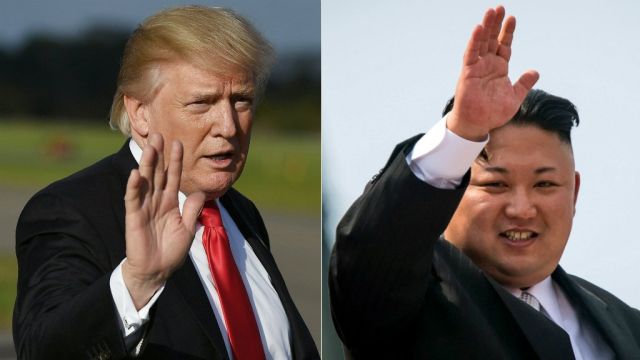
by admin | May 25, 2021 | Business Summit, Events, Social Round-up, World
 Washington : US President Donald Trump and North Korean leader Kim Jong-un will spend some time one-on-one next week at their second summit in Vietnam, White House officials said on Thursday.
Washington : US President Donald Trump and North Korean leader Kim Jong-un will spend some time one-on-one next week at their second summit in Vietnam, White House officials said on Thursday.
The summit, scheduled for February 27-28 in Hanoi, will “be similar in format to what you saw last June 12 in Singapore,” an official said in a conference call with reporters, speaking on condition of anonymity.
“There will be an opportunity for the two leaders to see one another one-on-one, to share a meal and engage in expanded meetings of their respective delegations,” the official said, reports Efe.
The White House has not made Trump’s agenda public yet and the source did not specify whether the private meeting — accompanied only by their respective interpreters — would occur at the beginning of the summit, as was the case in Singapore.
In Singapore, the leaders spoke privately for 38 minutes before the formal talks between the full delegations, sparking speculation about the content of Trump’s conversation with Kim.
The joint statement that emerged from the Singapore talks said that North Korea pledged to “work toward complete denuclearisation of the Korean peninsula” in exchange for unspecified security guarantees from the US.
One goal for next week’s encounter is reaching agreement on a “shared definition” of what denuclearisation means in concrete terms, the US official said.
Trump has also talked lately about North Korea’s economic potential and its advantageous location between Russia and China, so he is expected to expand further on that issue when he sees Kim, according to Efe.
“President Trump is looking to — after really, in some respects, breaking the ice with Kim in June — to talk in more depth about the kind of future that North Korea could enjoy if it follows through on its commitment to final and full denuclearisation,” one of the officials said.
One of the White House officials acknowledged that Pyongyang’s intention remains a mystery.
“I don’t know if North Korea has made the choice yet to denuclearise, but the reason why we’re engaged in this is because we believe there’s a possibility that North Korea can make the choice to fully denuclearize,” the official said.
“And that’s why the president has assigned such a priority to engaging with them,” the official added.
—IANS
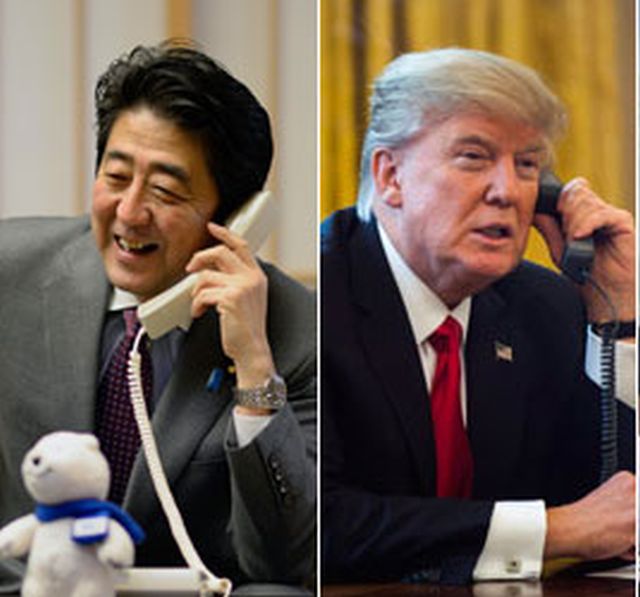
by admin | May 25, 2021 | Business Summit, Events, Social Round-up, World
 Washington : President Donald Trump on Wednesday had a phone conversation with Japanese Prime Minister Shinzo Abe about the upcoming summit between the US and the North Korea, the White House said.
Washington : President Donald Trump on Wednesday had a phone conversation with Japanese Prime Minister Shinzo Abe about the upcoming summit between the US and the North Korea, the White House said.
White House Press Secretary Sarah Sanders said in a statement that Trump and Abe in their phone call reaffirmed their commitment to achieving the final, fully verified denuclearisation of the North Korea and discussed the upcoming Hanoi summit between Trump and Kim Jong Un, top North Korea leader, at the end of this month.
Trump and Abe committed to coordinating closely in advance of the US-North Korea talks, according to the statement, reports Xinhua news agency.
“We firmly and closely coordinated our policies in the run-up to the second US-North Korea summit to resolve nuclear, missile and abduction issues,” Abe said after the phone talks with Trump.
Trump announced on February 8 that his second meeting with Kim would take place in Hanoi of Vietnam on February 27-28.
—IANS
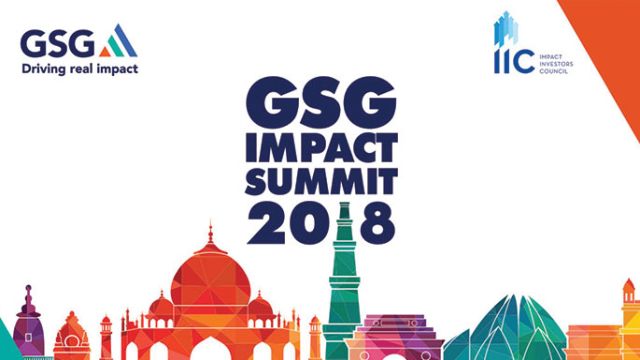
by admin | May 25, 2021 | Business Summit, Events, Investing, Opinions
 By Ravi Saraogi,
By Ravi Saraogi,
The Global Steering Group for Impact Investments (GSG) launched a billion-dollar India Impact Fund at a summit held in Delhi last week. The fund will focus on providing debt capital to social enterprises in development sectors like finance, health, education and renewable energy.
By channelling private debt capital to these sectors, the fund will play an important role in increasing the pool of resources for solving social issues.
Such socially-conscious investments which not only target a financial return but also social change is called impact investing. GSG, an independent global body based out of the UK, works on promoting such impact investments.
The fund is a unique initiative in two respects. It aims to drive social change by attracting private capital to sectors where the predominant source of funding is through government budgetary resources. Also, it is focused on making debt investments rather than equity investments at a time when most of the $5.2 billion of impact investments made in India over the last six years have exclusively focused on equity.
Rather than directly providing debt capital to social enterprises, the fund will set itself up as a debt wholesaler by either establishing a Non-Banking Financial Company (NBFC) which will then lend to social enterprises or investing in other debt impact funds. This structure will enable the fund to attract a larger sum of capital in the debt impact space through leverage and multiplier effect.
The NBFC can, for example, leverage through market borrowings on the capital provided by the fund. Similarly, investment by India Impact Fund in other local debt impact funds can crowd-in further investments from other investors.
GSG, in its study on such structures across the world, estimates that multiplier effect of a debt wholesaler can be as high as two. Thus, for every dollar the India Impact Fund invests, it can catalyse another dollar of debt investment from other investors.
The equity focus of impact investments till date is not surprising due to two reasons. First, providing debt to social enterprises in the absence of developing tailor-made evaluation criterion for them could be risky and very few institutions have invested in developing such criteria.
Secondly, in the absence of own evaluating criteria, investors rely on external credit ratings and most social enterprises are either unrated or get very low credit rating. The low ratings of social enterprises may not necessarily be because they carry higher credit risk. It is mostly due to the fact that they have unique and thus less understood business models.
Also, they mostly operate in sectors where the traditional route for carrying out social change is through charity and hence there is a tendency to look at social enterprises as non-viable. Doubts on whether social enterprises can borrow and repay are further reinforced as most of them are start-ups or have low vintage.
Several social enterprises have proved that these concerns are unwarranted. Like microfinance showed that being poor does not necessarily mean being uncreditworthy, and microfinance institutions showed that being a social enterprise does not necessarily mean being unviable.
Starting small, several microfinance institutions today are listed at the stock exchange. There are several such examples in other sectors.
A debt wholesaler who understands the nuances behind social enterprises can develop tailor-made underwriting standards for evaluating social enterprises and provide them debt capital. The India Impact Fund, as an initiative of the impact community, can invest in developing expertise around evaluation of social enterprises in different sectors – health, education, climate, access to finance, and other impact areas.
With the backing of large domestic and international impact investors, it can emerge as the pre-eminent impact debt wholesaler in India. The fund can also play an important role in developing India’s debt capital markets.
The outstanding value of corporate bonds in India is 1.6 per cent of GDP — the comparable number for the US is nearly 20 per cent . Close to 85 per cent of the bond issuances in India carry a rating of AAA or AA, leaving a large number of institutions with low ratings out of the debt market.
Thus, not only do we have a small debt capital market, the market is also lop-sided towards large and high rated institutions. By encouraging low rated enterprises to issue debt, the fund will not only increase the size of the debt markets but also widen its penetration to lower rated bonds.
The India Impact Fund comes at an opportune time. Impact investments in India have gained critical mass over the years and is poised to grow rapidly. The growing importance of India in the impact investment landscape is highlighted by the fact that the GSG held its Impact Summit 2018 in Delhi.
(Ravi Saraogi, CFA, is Head of Investor Relations & Products at Northern Arc Investments, Chennai. He can be reached at ravi.srg@gmail.com)
—IANS
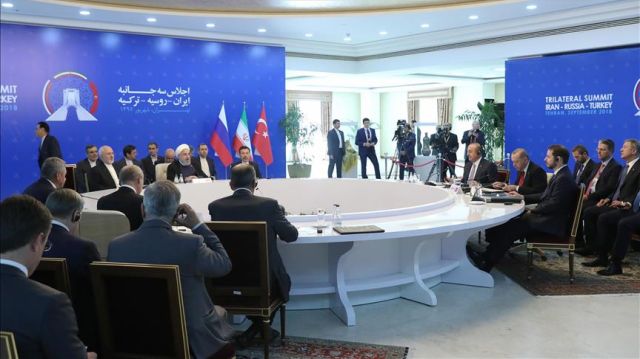
by admin | May 25, 2021 | Business Summit, Events, Muslim World, Social Round-up

President of Turkey Erdogan, President of Iran Rouhani and President of Russia Putin attend trilateral summit on September 7, 2018 in Tehran, Iran.
By Satuk Bugra Kutlugun,
Ankara: Turkey, Iran, and Russia on Friday called for a political solution to the crisis in Syria in a joint statement issued at the end of a trilateral summit in the Iranian capital Tehran.
“There could be no military solution to the Syrian conflict and it can only end through a negotiated political process.
“[They] reaffirmed their determination to continue active cooperation with a view to advancing the political process in consistence with the decisions of the Syrian National Dialogue Congress in Sochi and the UN Security Council Resolution 2254,” the statement said.
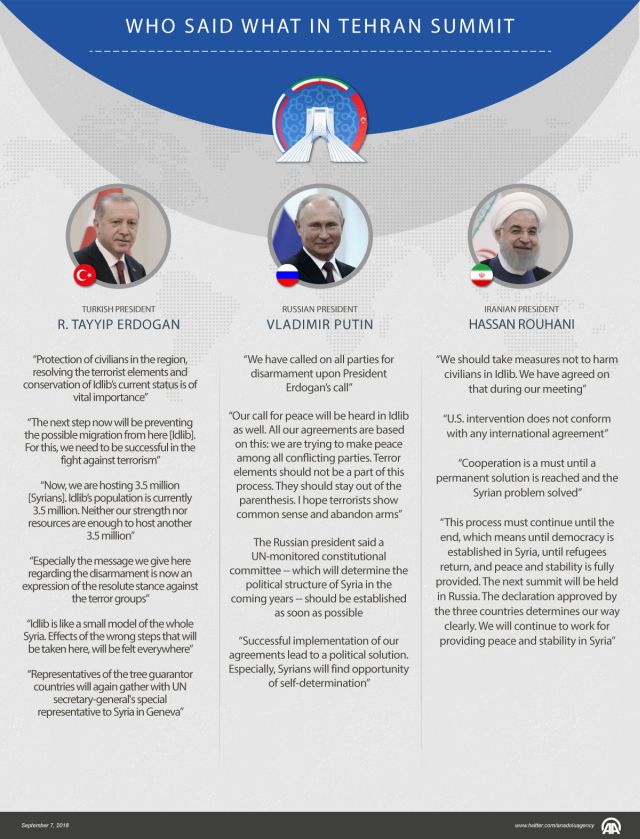
The leaders expressed their “satisfaction with the achievements” of the Astana format since January 2017, in particular, the progress made in “reducing violence across the Syrian Arab Republic and contributing to peace, security, and stability in the country.”
Iran, Turkey and Russia “emphasized strong and continued the commitment to the sovereignty, independence, unity and territorial integrity of Syria, as well as to the purposes and principles of the UN Charter and highlighted that they should be respected by all.”
The leaders “rejected all attempts to create new realities on the ground under the pretext of combating terrorism,” while expressing determination to stand against separatist agendas aimed at undermining the sovereignty and territorial integrity of Syria and national security of neighboring countries.”
The joint statement said the leaders highlighted the “need to create conditions for the safe and voluntary return of refugees and internally displaced persons (IDPs) to their original places of residence in Syria.”
Russia, Iran, and Turkey also called for the United Nations and its humanitarian agencies to help Syria by providing additional humanitarian aid.
The joint statement also welcomed the progress in the work of the Working Group on the release of detainees and abductees, and handover of the bodies as well as the identification of the missing persons, as undertaken with the participation of the UN and ICRC experts.
The next tripartite meeting will be held in Russia, upon the invitation of President Putin.
—AA

by admin | May 25, 2021 | Business Summit, Events, Social Round-up, World
 Seoul : Russian President Vladimir Putin on Wednesday invited North Korean leader Kim Jong-un for a summit to discuss urgent issues, the media reported.
Seoul : Russian President Vladimir Putin on Wednesday invited North Korean leader Kim Jong-un for a summit to discuss urgent issues, the media reported.
Putin expressed his readiness to hold a summit with Kim at an “early date” in a message sent on the occasion of North Korea’s liberation, coinciding with the 73rd anniversary of Japan’s surrender in World War II, North Korea’s state news agency KCNA reported.
“I affirm that I am ready to meet you at an early date to discuss urgent issues of bilateral relations and important matters of the region,” Putin said.
Earlier in May, the Russian President invited Kim to the Eastern Economic Forum in the Russian coastal city of Vladivostok between September 11 and 13, but Pyongyang was yet to respond.
Putin also invited his South Korean counterpart Moon Jae-in, Chinese counterpart Xi Jinping and Japanese Prime Minister Shinzo Abe to the forum.
If Kim and other leaders decided to attend, it would be an unprecedented international gathering in which leaders from five of the six countries that have been working on nuclear disarmament meet.
—IANS

 Washington : US President Donald Trump and North Korean leader Kim Jong-un will spend some time one-on-one next week at their second summit in Vietnam, White House officials said on Thursday.
Washington : US President Donald Trump and North Korean leader Kim Jong-un will spend some time one-on-one next week at their second summit in Vietnam, White House officials said on Thursday.




